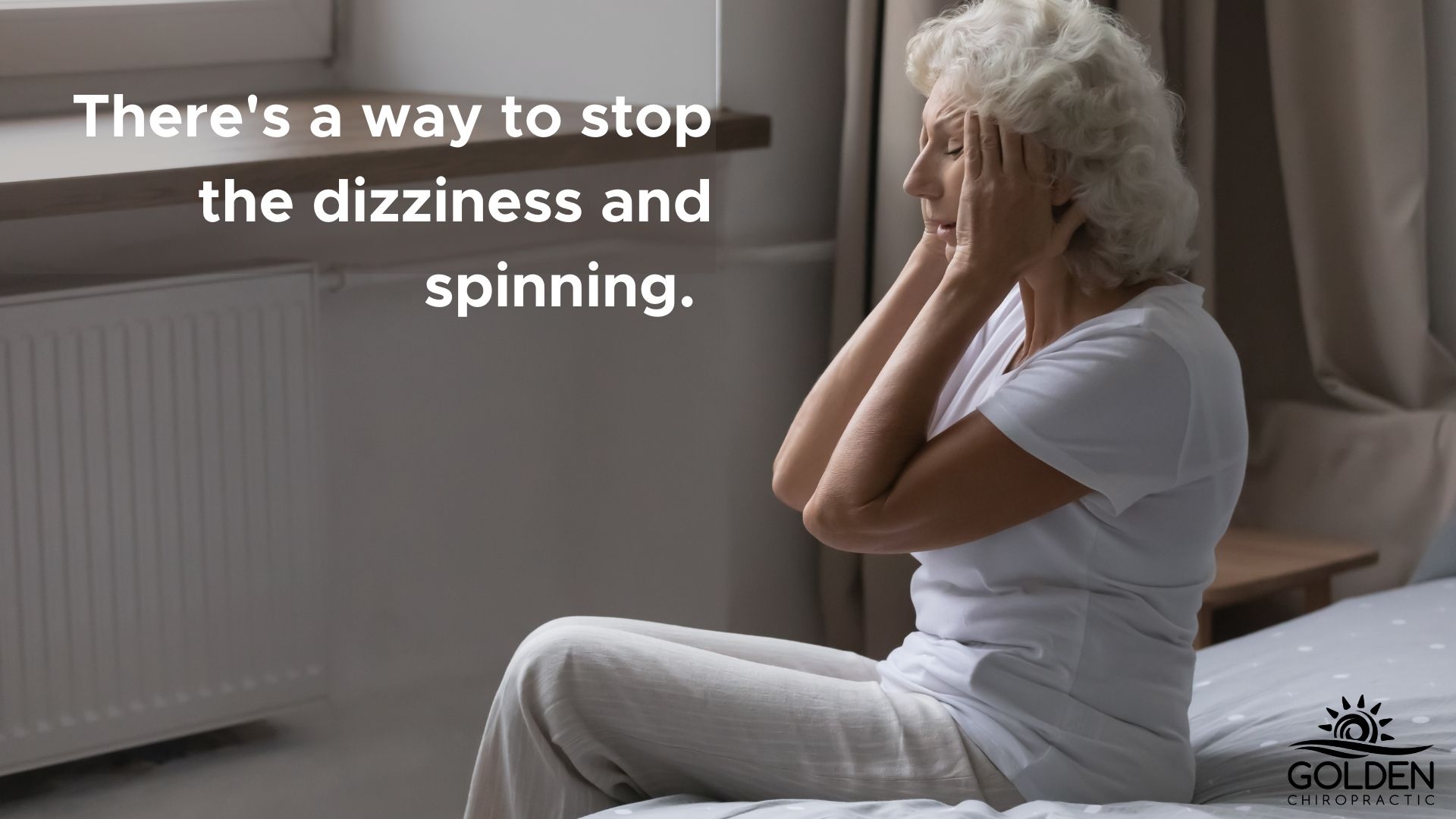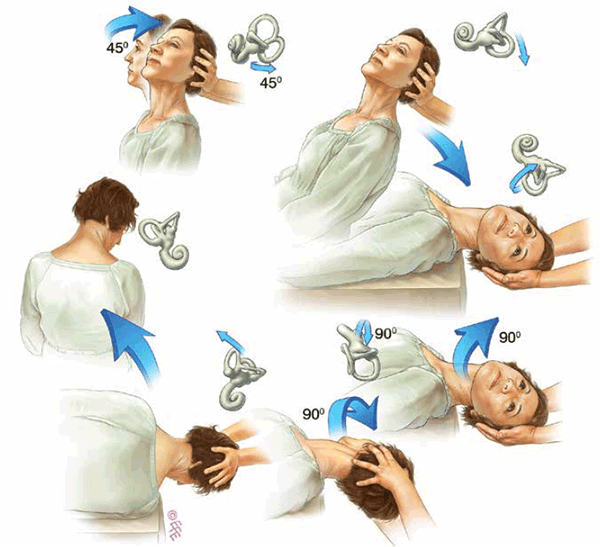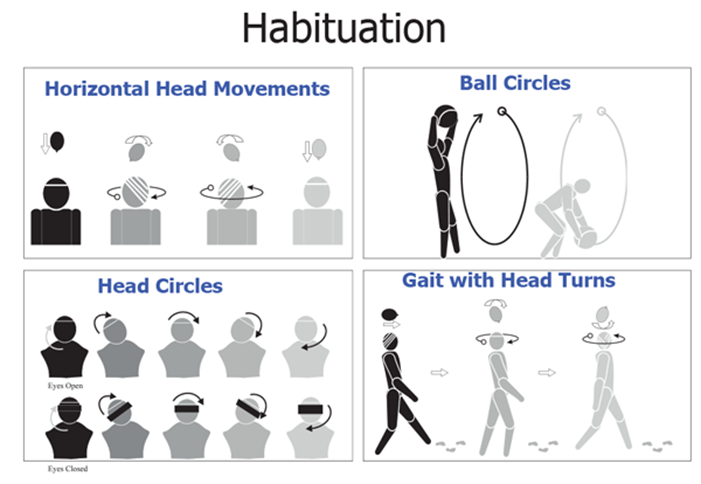
08/23/2024 by Dr. Goldi Jacques-Maynes
Vertigo: Stop the World from Spinning
Vertigo is scary.
Sometimes it’s feeling dizzy and light-headed. Maybe the dizziness only happens when you look to one side or the other. Maybe it comes when you extend your head or just look up.
Sometimes you may feel like the room is spinning. Other times you feel like you’re moving when you’re actually still.
Vertigo can affect your balance and your other senses.
Vertigo can make you fear falling down, like you’re not able to control your ability to function.
Our patients with vertigo symptoms have good reason to feel nervous and uneasy. Vertigo makes you feel out of control.
How one of our patients described his vertigo.
"I smacked my head into a cabinet door. It gave me pause for half a minute, but nothing more.
A day later I had an episode of vertigo. As the day continued, I had more episodes.
The room would spin. I would have to reach out with both arms to steady myself, or I would tip over.
It was alarming! Complicating things was the nausea and waves of unbalance."
What causes vertigo?
Vertigo can have some surprising causes.
Psychological conditions, inner ear issues, head trauma, and even some medications can cause your world to spin.
What are the psychological causes of vertigo?
For 37-40% of those experiencing dizziness, a psychological condition like anxiety, depression, or somatic symptom disorder can be the cause.
What does it mean to have physically caused vertigo?
Vertigo—aka Benign Paroxysmal Positional Vertigo—occurs when a small otolith (crystal within your inner ear responsible for maintaining equilibrium) becomes dislodged. This results in dizziness, and feeling off-balance.
For our patient mentioned above, the physical cause of his vertigo was a head trauma.
Vertigo can be caused by certain medications.
We advise our patients to consult their medical doctor if they believe their dizziness is caused by a medication's side effect.
Sometimes, it just seems like it's vertigo.
There are times when there are symptoms of vertigo, but it's actually an issue with your cervical vertebrae.
Adjusting the first cervical vertebrae has been shown to reduce dizziness when the cause is cervicogenic.
Trigger point manual therapy/soft tissue work on the scalenes (muscles in the neck) may reduce pressure on the vessels of the neck, relieving dizziness.
Who can get vertigo?
The truth is, this condition can happen to anyone. About 40% of US adults experience vertigo at least once in their life. Women are slightly more likely to get vertigo than men are.
Estimates show that dizziness affects nearly 50% of the elderly population at some point.
How do chiropractors diagnose vertigo?
First, we take a thorough health history.
Next, we assess your range of motion to see if a certain head position triggers your vertigo.
We then evaluate for nystagmus (jerking eye motions associated with vertigo).
Here's how our vertigo patient described the process of being diagnosed:
"I saw doctor Goldi. She listened to my story. She checked my flexibility, then performed a couple of head turns to see if the vertigo occurred. She made it come back! It took maybe 15 or 20 seconds for everything to calm down and my eyes to return to normal vision."
How do chiropractors treat vertigo?
We apply the modified Epley’s maneuver to treat vertigo. The illustration below this post shows the process for performing Epley’s maneuver. Here's how our patient described it:
"She did a little back of the neck massage and then the Epley maneuver, then a quick flick that made my neck go pop! She repeated the exercise on the other side, then came a repeat of the vertigo test. The dizziness was nearly gone. Amazing!"
If we determine that your dizziness is not caused by vertigo, but is actually a result of issues with your neck's bones and musculature, we may prescribe chiropractic adjustments and/or soft tissue therapies.
What can I do at home to treat my vertigo?
You can do what’s known as habituation exercises.
Habituation exercises reduce the feelings of motion or movement. They also stop the after-motion feeling. You can see some examples of habituation exercises at the end of this post.
You can also try to ease your symptoms by:
- Sleeping in a recliner to stay slightly propped up
- Moving slowly
- Trying not to provoke the dizziness
- Avoiding looking up toward the ceiling
How long does it take for vertigo to resolve?
As we always say, every body is different. Healing and resolution times vary based on age, general health, and cause of vertigo.
For our above patient's vertigo, it took a few days:
"It took another day or so for my stomach to finally settle, but from the moment I left Doctor Goldi's office I had almost no dizziness.
Another day later, my dizziness is gone. My stomach is no longer doing backflips, and I was able to get back on my bike. Life is good again!"
Feeling dizzy, lightheaded, or like the room is spinning?
You may have vertigo or cervical issues in your neck.
No matter the cause of your symptoms, we can help you get back to a stable feeling.
If you’re certain your feelings of vertigo are not related to medication side-effects, come see our chiropractors in Aptos.
You can book your chiropractic appointment online.
Click the images below to get a closer look at Epley’s maneuver and habituation exercises.


